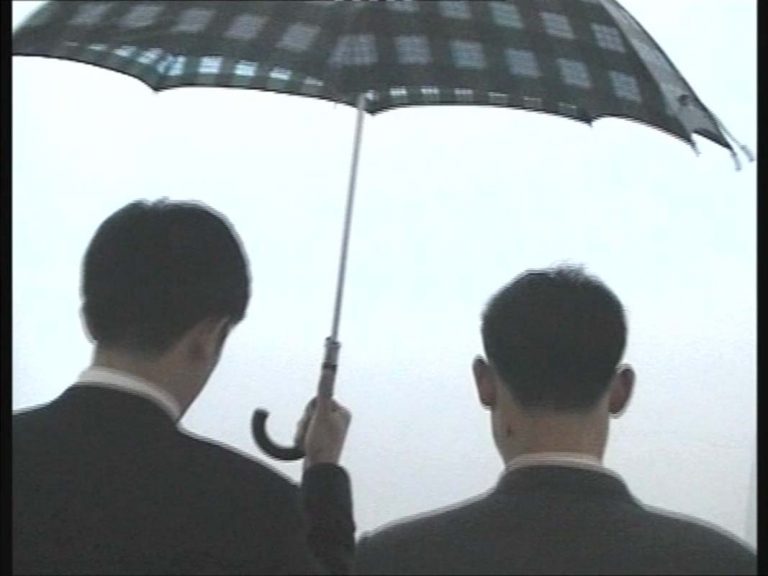We acknowledge the Traditional Owners of the land on which the Queensland Art Gallery | Gallery of Modern Art stands and recognise the creative contribution First Australians make to the art and culture of this country.

Yang Fudong / China b.1971 / City light (Chengshi zhiguang) (still) 2000 / Mini DV transferred to DVD, colour, stereo, 6:40 minutes, colour, stereo, ed.3/10 / The James C. Sourris AM Collection / Purchased 2003 with funds from James C. Sourris through the Queensland Art Gallery Foundation / Collection: Queensland Art Gallery | Gallery of Modern Art / © Yang Fudong
Yang FudongCity light (Chengshi zhiguang) 2000
On Display: Regional Touring Exhibition
This playful work presents a portrait of urban alienation. Dressed as young professionals, the protagonist and his shadow take turns to lead each other in everyday actions, moving in and out of sync. Their whimsical routine describes a serious dislocation of body and soul divided, made weary by the unfamiliarity of Shanghai’s rapidly changing surroundings — a result of the historic return to an open-door economic policy by Deng Xiaoping in 1978.
When the prop umbrella is replaced by a toy gun, the work’s references shift from slapstick to a detective genre, describing a violent unrest within our antihero. His restless unconscious acts out a mock shooting, retaliating against the city and the forces that disrupt a sense of home and place.
The narrative language of film and its ability to convey complex and profound human emotions is the foremost motivation for Yang Fudong’s practice. He states, ‘the Chinese approach is often to focus on a concept, something that I too am relatively enthralled by. A concept is something that is difficult to make tangible, yet it might be right at your side, it might be anywhere’. 1
Yang Fudong seeks inspiration from what he refers to as ‘literati short films’. In China, the literati were scholars and painters trained in Confucian classics, poetry and history. One of the most important aspects of their profession was their creative ability to express through word and image their relationship to culture in its past and present state. For Yang Fudong, this ‘literati’ concept is an important influence on his choice of film as his medium. Just as these men of letters saw poetry as a conduit to their inner thoughts, Yang Fudong views the moving image as a necessary part of his artistic expression.
Endnotes:
1 Yang Fudong, ‘An interview with Yang Fudong by Chen Xiaoyun’, <www.chinese-art.com/artists/YangFudong/>, viewed May 2003.